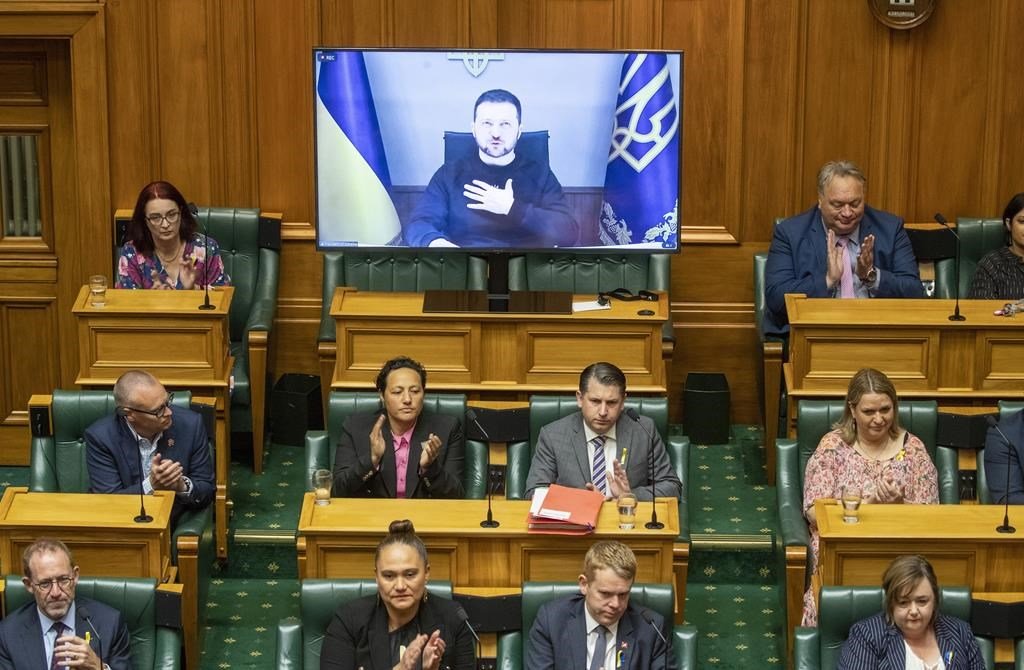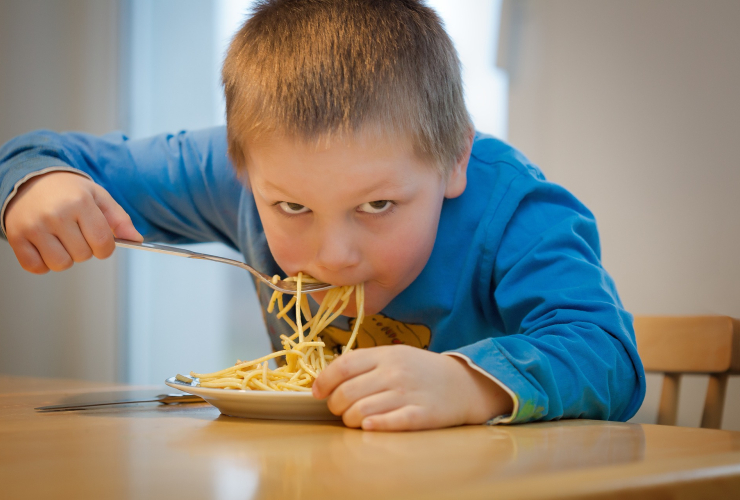Ukrainian President Volodymyr Zelenskyy urged New Zealand to take a leading role in focusing on the environmental destruction his country is suffering as a result of Russia's invasion.
Zelenskyy delivered his message via video link to lawmakers who packed the debating chamber at 8 a.m. Wednesday. He became just the second foreign leader to address New Zealand's parliament, after Australia’s Julia Gillard did so in 2011.
Zelenskyy said it was possible to rebuild a nation's economy and infrastructure, even though it may take many years.
“But you can’t rebuild destroyed nature, just as you can’t restore destroyed lives,” he said.
Zelenskyy is pushing for a 10-point peace plan that, as well as environmental protection, including items such as nuclear safety and justice. He has been asking various countries to take a lead on different points.
He said some of the environmental effects of the war included poisoned groundwater, ravaged forests, flooded coal mines and huge areas of Ukraine that remain contaminated from unexploded mines.
Zelenskyy thanked New Zealand for their contributions to Ukraine's war effort so far and offered a message of hope.
“Various dictators and aggressors, they always fail to realize the strength of the free world’s governments," he said.
New Zealand announced it was providing another 3 million New Zealand dollars ($2 million) in humanitarian aid through the International Committee of the Red Cross, adding to the NZ$8 million it had already provided.
New Zealand Prime Minister Jacinda Ardern told Zelenskyy her country's support for Ukraine wasn't determined by geography or diplomatic ties.
“Our judgment was a simple one,” she said. “We asked ourselves the question, ‘What if it was us?’”
She said that in such a scenario, New Zealand would want nations in the international community to use their voices, “regardless of their political systems, their distance, or their size.”
Lawmakers finished the address by singing a World War II-era song in the Indigenous Māori language.




Comments